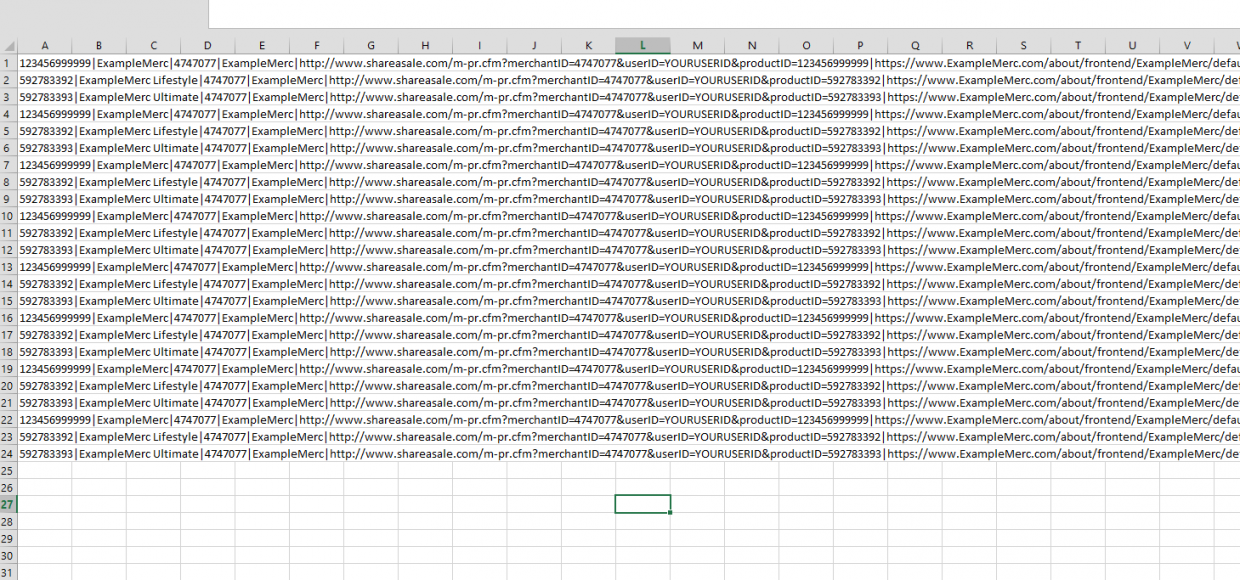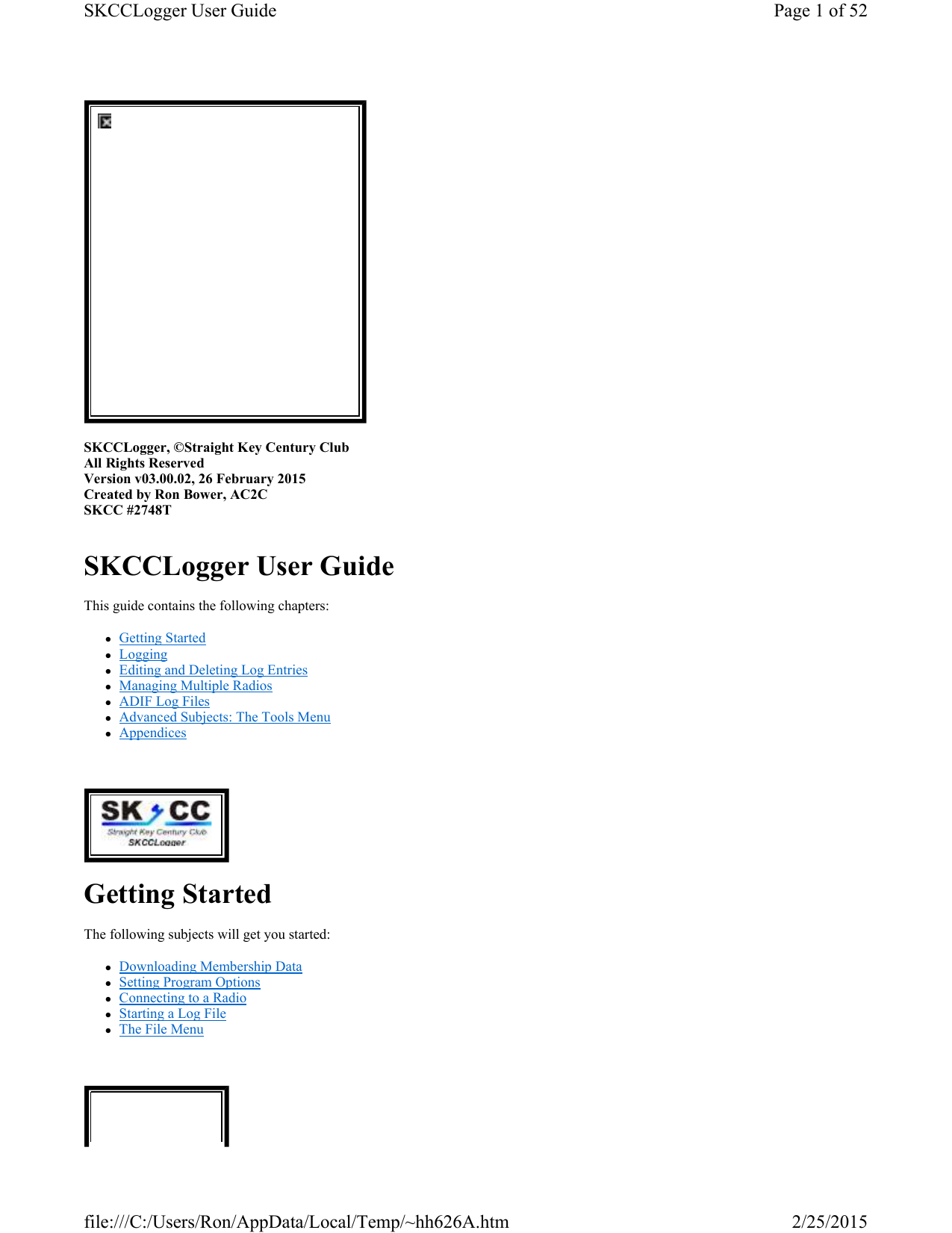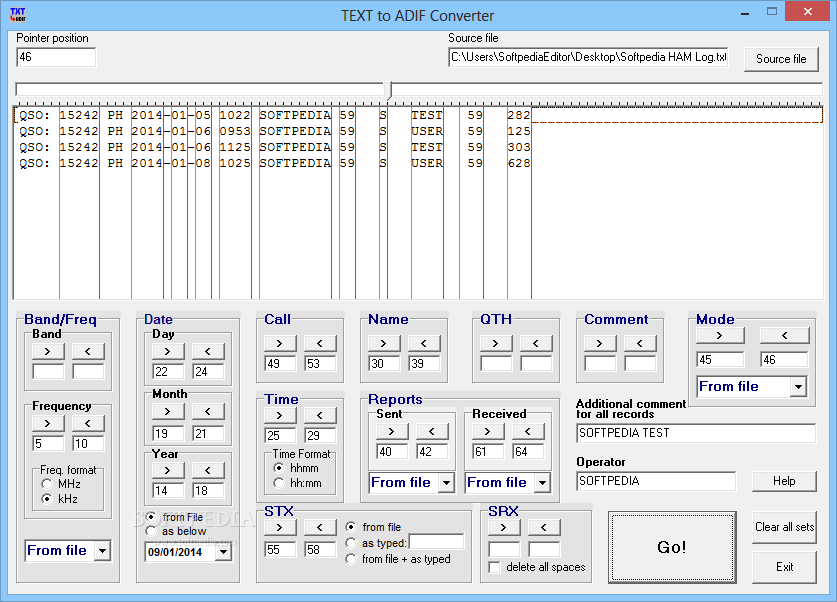This second file format, referred to as ADX, references the same Data Types, Enumerations, and Fields as are referenced by the original ADIF file format, now referred to as ADI. Development If you would like to discuss the specification, request a change, or report errors, please join the ADIF Developers Group. Selecting File Import ADIF from Amateur Contact Log allows you to import data into your general log. After selecting this option, a Windows Open File form will appear. Use this form to navigate to the file you wish to import into your log. When importing an ADIF file, the imported records are appended to your existing log. LogChecker can be used to convert Amateur Radio log files to a Cabrillo format and to convert Cabrillo log files to an ADIF format. The LogChecker currently supports the following file formats: ADIF, CT v8, v9, v10, STF, TR Log, EDI, ARRL, MixW, ADX, MDB, DBF, Excel (.xls), any comma and TAB or white spaces delimited files. This program converts a plain text file resembling (to a limited extent) a hand-written station log to widely used ADIF (Amateur radio Data Interchange Format). Originally, I named it SmartLog, to emphasize my program's outstanding position among hundreds of other ham radio utilities. Then I realized there were some 30-60 other 'smartlogs' hanging.

Convert Text File To Adif
locked Re: N1MM Logger+ EXPORT ADIF <STX> - <STX_STRING> MISSING #n1mm


Adif To Cabrillo Converter Program
#50127 You are basically correct. Technical BS follows. What the user seems to want is the string that was in the exchange field before logging the QSO. N1MM does not store the string that was in the exchange field. Rather, it parses it out into individual elements and stores them in separate columns in the database. Cabrillo export is always in the contest of a single contest. There are classes for all the various contests and these classes include methods that assemble the individual fields back into a string to meet the Cabrillo specification (this is simplified, but close enough). A contest class is always already instantiated when you Generate Cabrillo. ADIF exports can span multiple contests. The export code simply creates the WHERE clause for the SQL to return the QSO records wanted and passes it off to an ADIF file printing routine. In order to get the columns required and the information in the correct order to recreate the original exchange field you’d need to instantiate an instance of every contest class you came across in the QSO rows processed AND you have the include all the “special” code in the Cabrillo routines to process contests like ARRL SS. Since all the raw fields are available already and there is IMO, zero value to recreating the way you may or may not have typed the exchange (SS allows entry of the elements in almost any order) I don’t think John or I see this as worth the effort required to redesign enough code to do it right. No one wants to make a hash. Al AB2ZY From: N1MMLoggerPlus@groups.io [mailto:N1MMLoggerPlus@groups.io]On Behalf Of Ken McVie Sent: Sunday, April 26, 2020 8:01 PM To: N1MMLoggerPlus@groups.io Subject: Re: [N1MM+] N1MM Logger+ EXPORT ADIF <STX> - <STX_STRING> MISSING #n1mm Not sure what the problem is here -- when I import an ADIF contest file from N1MM into my normal logger program Logger32, all fields are imported -- contest name, SRX, STX, RSTS, RSTR. This all happens automagically!!!
|